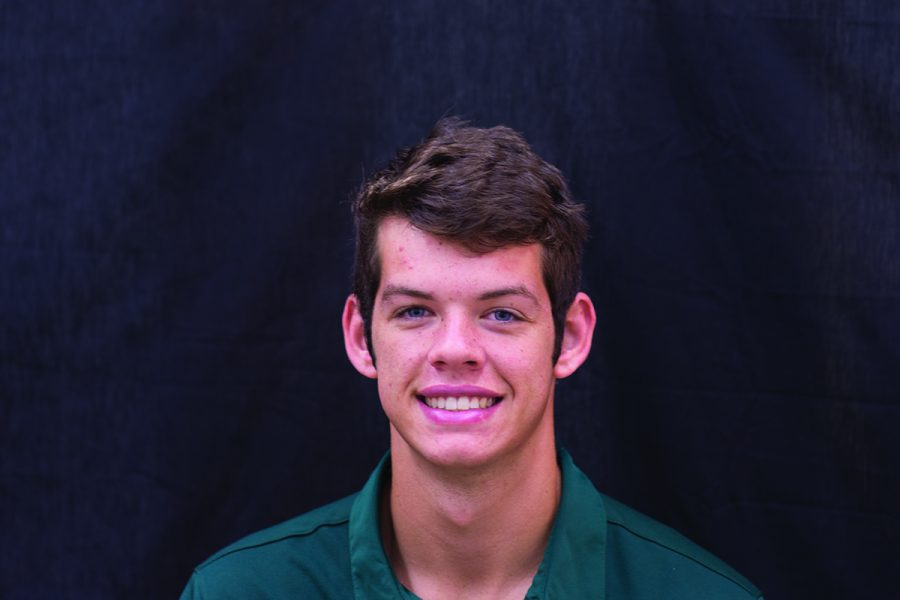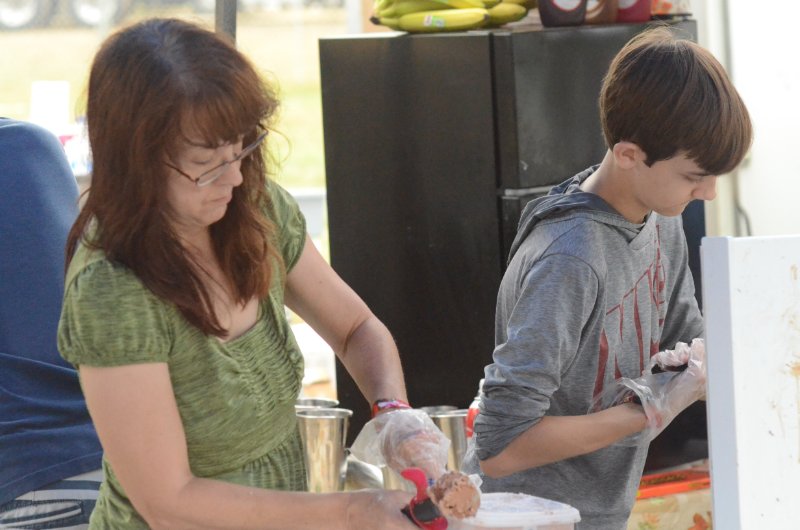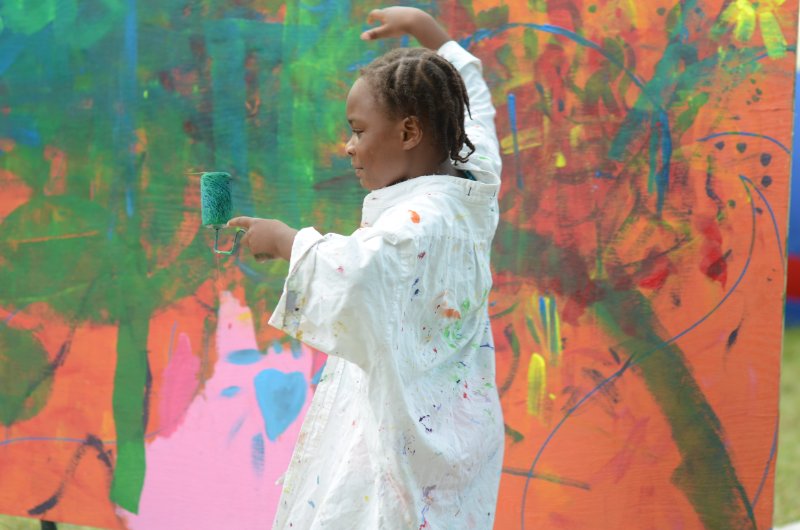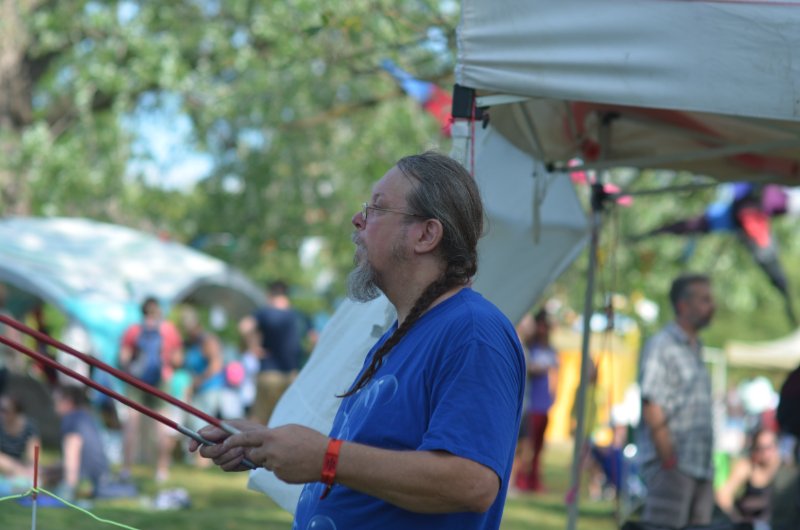
By Justin Sutherland
“What most definitely motivated me to start running was when I was in high school, a kid started making fun of me because he was in a group of girls,” Olisah said. “He said that I was not as fast as him.”
Olisah decided to take up the challenge and race him, despite not having experience in track. He believed that if he thought he could beat his opponent, he would be able to win.
“I told the coach that he could not beat me in the 100 meters,” Olisah said, “so we took the challenge. I ran, and I beat him.”
The students never made fun of him again because he was the fastest runner in the school. Instead of focusing on revenge on the kids that said he wasn’t good enough, Olisah put his efforts into racing. This is when Olisah’s running career began to take off.
He started by running the 100 meter dash and the coach decided he should also train him for the 200 meter dash as well. He won his events and later went on to state where his success continued.
The competition was fierce because of the track emphasis in Nigeria, according to Olisah. He had to train continuously after school in the tropical climate of his home country, doing workouts that not only focused on his speed, but also endurance training.
“There are lots of runners in Nigeria,” Olisah said, “so you have to be really good to win.”
Olisah continued to race. He went on to a competition called the “National Sports Festival” which is comprised of all the top runners from each of the Nigerian States.
“I won because back then I had a really good time in the 100 meters,” Olisah said. “I also took second in the 200 meters so I got to go to the Olympics.”
Olisah’s best time for the 100 meters was 10.02 seconds, which has a world record of 9.56 seconds. His best time for the 200 meters was 20.01 seconds, which the world record is 19.19 seconds. However, he was not able to compete in the 1980 Olympics held in Moscow because of an injury of a pulled hamstring.
Similarly, junior Jenna Duckworth played for the RBHS softball team during her freshman and sophomore years, but because of an injury from last season, she was unable to play this season.
“I broke a bone in my knee and played on it all summer,” Duckworth said. “After the season was over the pain was unbearable, so i went to the doctor.”
The long season took its toll on her knee. The doctor told her that she would need surgery to get part of the bone taken out. The consequences were increased because of her continuing to play on it, but Duckworth wanted to finish her season strong.
“I was determined to finish out the season,” Duckworth said, “even if that meant playing with the pain.”
She empathizes with Olisah’s hardship of not being able to run in the most watched time of his career since she had to give up her own sport because of her injury.
After the disappointment from the inability to race in the Olympics, Olisah had an opportunity to come to America because of his speed that helped him overcome the devastation from his pulled hamstring. He had the choice between five different universities, which included the University of Missouri -Columbia where he decided to get a degree in Economics, graduating in 1984. Since then, Olisah has stayed in America and still runs in competitions.
“I am not too old to compete, but I did have a stroke,” Olisah said. “I cannot run as fast as I used to but I think I can win the races.”
At the young age of 46, Olisah had a stroke while driving that caused his right side to be paralyzed. He had to call his wife, who insisted on him calling an ambulance; however, stubbornly drove to the hospital instead. With his left foot controlling the pedals and his left hand operating the wheel of the car, Olisah made it to the hospital. The paramedics carried him into the building where the doctor discussed with him the probabilities of what could have happened to him if he waited instead of driving himself.
“The doctor said if [I] would have called the ambulance,” Olisah said, “I would not have made it.”
Even though Olisah has to take a medicine called Plavix for the rest of his life, his decision to drive himself instead of waiting for the ambulance saved his life with no permanent injuries. This allowed him to continue working in America, which Olisah still accredits to his scholarship given from the University of Missouri.
“Just because I run,” Olisah said, “I was allowed to come to America through my scholarship.”
In America Olisah made work a high priority for his life, and even enjoys it. He has three full time jobs and one part-time job to help take care of his 11 kids.
“I am a workaholic,” Olisah said. “I work a lot because if you don’t work, you can’t make it in this country.”
One thing that Olisah’s work ethic pushed him to do was further his education. He believes that you are better off when you further your education. Although he already had a degree, Olisah decided to go back to get his Master’s degree for Economics.
“I am now going to school, attending the University of Missouri and hopefully I will finish my masters,” Olisah said. “It’s tough, but I am doing it.”
Olisah believes determination is the key to success, whether it comes to school, running, or anything. The competition that you face is not only others, but how much you want to achieve your goal. Olisah often encourages people by saying “if you believe you can do it, then you can do it no matter what you are faced with.” No matter what comes, Olisah perseveres during the adversity he faces.
Through going to the Olympics but not being able to compete, through moving to a different country and making a new life for himself, through even a stroke, Olisah had the ability to withstand and thrive in the face of adversity. He trains himself to succeed, setting his mind to be able to accomplish what he believes he has the ability to complete.
“Keep your mind into it, and you can,” Olisah said. “If you say, ‘I can still run,’ then you have to train. It’s in the body, but if you keep at it then you can still do it.”
By Justin Sutherland


















































































